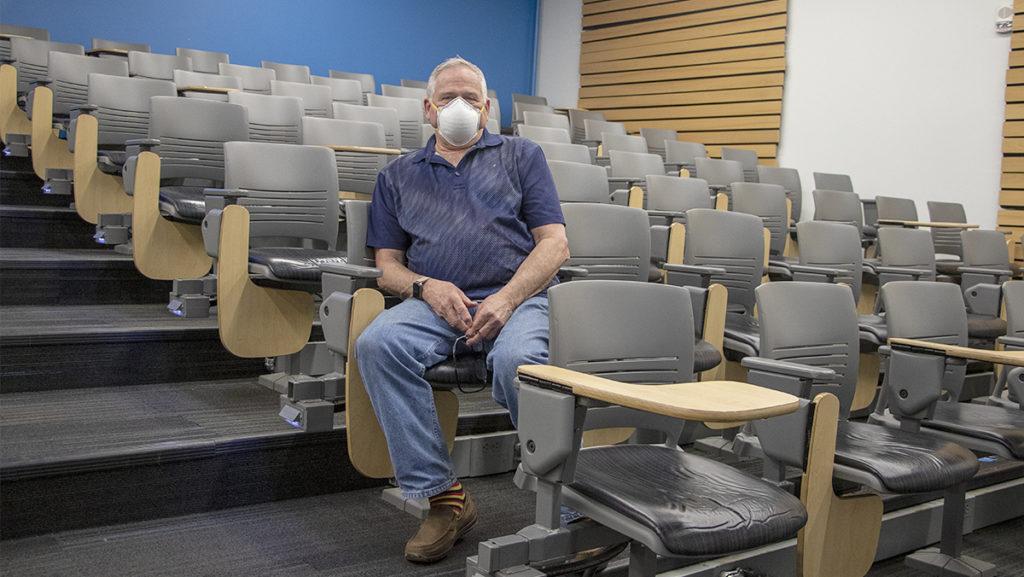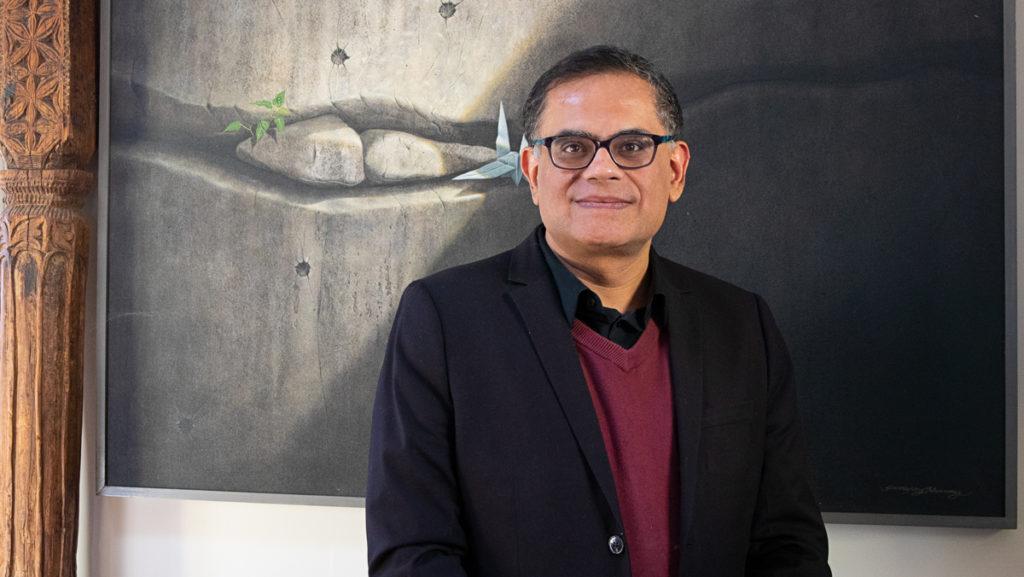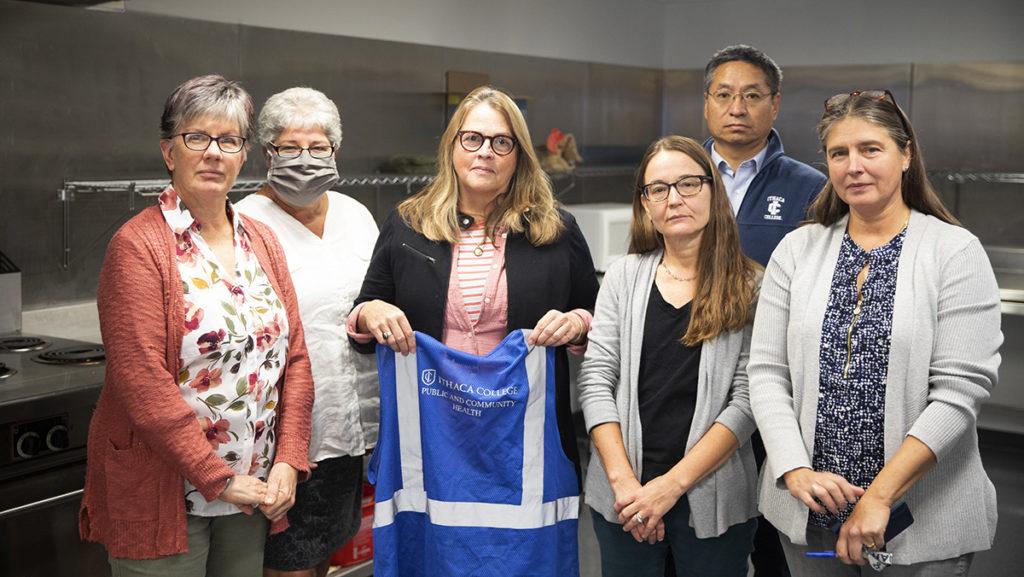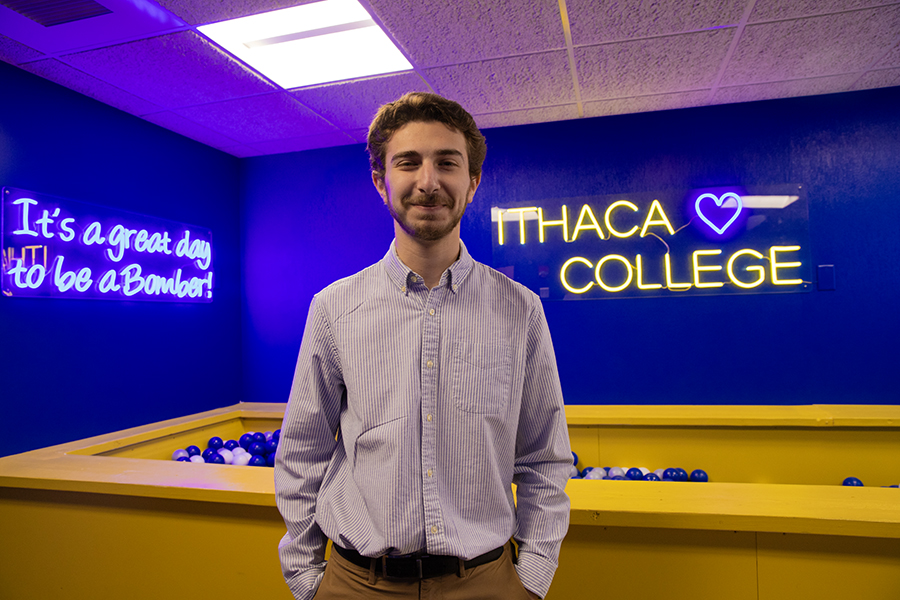Dear Politics students and alumni,
We write to share our response to the APP recommendations (The Shape of the College), as we feel it is important to keep you informed.
If this Academic Program Prioritization Process at IC goes forward, we will lose two excellent colleagues (Assistant Profs. Alex Moon and Juan Arroyo) who provide insightful teaching, dedicated service and who share scholarship and knowledge with the IC community. They have done so for a total of 41 years; 21 and 20 years respectively. They are loved by students. They teach classes that others cannot and their flexible intellects allows them to fill gaps in our curriculum. Their recently negotiated appointments should take them through 2024-25 (Prof. Moon) and 2023-2024 (Prof. Arroyo). Our unanimous departmental response to APPIC, and to the Provost and President, is that we reject their termination of our valued colleagues. Losing them is a mistake that will have a large negative logistical and curricular impact on our department and on the college. We already see evidence that retention and admissions will suffer as students lose confidence in the breadth and relevance of the education they can receive at Ithaca College.
Curricular Effects for Politics:
The courses taught by both faculty members are essential for any reputable Politics program. US Politics (POLT 10100) is a requirement- in every political science program in the U.S. All students should have a grounding in U.S. Politics as it provides a platform for larger conversations about political life both in the U.S. and internationally. In addition to U.S. Politics, Prof. Moon teaches core courses in the subfield of U.S. Politics and Political Theory, including: Constitutional Law, U.S. Supreme Court, Black Political Thought, Theory and Practice of Race, Theory and Practice of Punishment, Political Theory of Conservatism, Radical Social Criticism: Rousseau, Marx, Nietzsche, Freud, and Foucault, Contemporary Political Theory, Theory and Practice of Toleration, Transitions to Modernity: Social Theory and the Persistence of Religion, and others.
Professor Moon’s expertise is Political Theory and this allows him to teach the diverse array of courses mentioned above. Every year, Professor Moon adjusts to Department needs via intense reading, research, and calibration of lesson plans. Recently Professor Moon has stretched into Legal Studies (Foundations in Law, LGST 10100). We will need him to teach still more courses in Legal Studies when Professor Tom Shevory retires in May.
Removing this position affects the capacity of students to be guaranteed a place in the class as needed in their freshman year. Furthermore, if the department chooses to restrict course enrollment to only what Dr. Figueroa can cover, we will lose the ability to attract exploratory students and students who major or work in Journalism, PCIM-Independent Media, Documentary Studies, TVR, Business, Health Policy and Management, all of which strongly encourage U.S. Politics for the foundation it gives them for future careers in those industries.
Likewise, Prof. Arroyo teaches many courses that will not be covered by others. He teaches courses that have always been well-enrolled and in high demand in European Politics, Politics of the European Union, International Organizations, and Food and Water: The Challenges of Sustainability (Integrative Core Curriculum course, Social Science perspective), all of which have policy content and cover important and current global and national themes. Students graduating with a degree in Politics/International Politics will lack an understanding of the areas such as International Institutions, the European Union, and Politics in Europe. Prof. Arroyo offers advanced level courses such as Catholics and Politics, Comparative Welfare States, and Practicum in International Governance. These courses are crucial to the department’s International Politics Concentration.
We are shocked by the failure of the administration to understand that cutting Professor Arroyo means the termination of the Model United Nations and Model European Union. We cannot run the Model United Nations programming without Prof. Arroyo’s experience, expertise and endless patience and affinity for his students. Prof. Arroyo has done this work in large part uncompensated, and because he has a passion for it. Prof. Arroyo’s role is critical in the department in terms of his leadership, service and curricular innovations and accomplishments regarding these programs. Under his guidance, MUN has been repeatedly cited by alumni and donors as one of the major experiences binding them to IC . Before IC cancelled the activities due to COVID-19, there were a total of 31 students participating in both programs (22 in MUN and 9 in MEU). As well, Dr. Arroyo teaches Exploring the Options for the Exploratory Program at I.C., and the Food and Water course that covers topics that are urgent and that discuss current global topics like water privatization and food sovereignty).
Our Department mission is to promote critical thinking; to educate students to become globally aware; to provide our students with the tools to understand change; and to foster in our students a critical self-consciousness about their ethical position vis-à-vis political and civic life.
The absence of these classes as core aspects of our program will affect students seeking post-graduate programming, and other careers. Our students have benefited from grounding their critical thinking in these foundational courses, and with these dedicated and experienced faculty members. Their/our students have gone into careers such as: Senior Policy Manager @ Oxfam International, New York State Assembly and national Senate Budget Committee legislative aid, political consulting, law school and graduate school in political theory and U.S. politics. Any transcript that indicates a lack of knowledge of US politics or European politics today is seen as a major deficit — as noted in the recent report by the external assessor. The choices being made for short-term budgetary purposes will generate a spiraling long-term disaster from which the department is unlikely to recover.
In addition to this, nowhere in the APPIC’s State of the College Draft or in the Dean’s conversations with the department chair is there any justification given to substantiate these two cuts in terms of program needs and demand. We provided them with qualitative and quantitative analysis of the APP Dashboard data for the department, but APPIC gave us no evidence that they engaged with the analysis or the data, despite their claim that “The committee proposes shaping the curriculum by streamlining areas with less demand and investing in new areas of study.”
Overall Logistical/Strategic Needs of the Department:
• We will not be able to sustain the MUN and MEU.
• We will have staffing gaps, especially with retirement, and sabbatical gaps that will be hard to fill.
• We will be forced to suspend the plans to move ahead with the policy minor/concentration persistently requested by students and identified by the external assessment as critical to our program; both Prof. Arroyo and Prof. Moon were to play significant roles in this minor/concentration.
• Impact on other faculty: we will have to forego teaching some of the areas that students persistently request.
• The loss of our colleagues will gravely reduce department morale and reduce trust in the college administration.
• Already our students are coming to us with concerns around being able to fulfill our language requirement, because courses and certain languages in Modern Languages and Literatures are being cut. The result will be that our department and the college will lose more students as IC’s commitment to global awareness is diminished.
Impact on the College:
Negative effects on other majors, the ICC, admissions and retention:
• U.S. politics has become critical to other majors and centers; Journalism, Documentary Studies, TVR, PCIM, Health Management and Policy, and Business.
• Courses taught by both Professors Arroyo and Moon hold multiple ICC designations.
• This will affect admissions; numerous students have enrolled because of MUN, MEU, and our strength in the areas of U.S. Politics, International/Comparative, and Political Theory. This will be a negative impact on our national and regional competitiveness.
• The APP recommendations to fire faculty members who have been with us for more than 20 years each, and who teach critical courses, will affect student retention (unsatisfied students will leave the college). Students are already frustrated when they have not been able to enroll in courses they need because the course is full or when they are told the professor is not available and the course has been canceled. Students will struggle to take advantage of study abroad opportunities which are profiled during our admissions events and on our college website; this is because they will be forced to take a introductory U.S. politics class in their sophomore year and then intermediate courses in the year they had planned to study abroad.
In our response to APPIC, we also included Faculty focused comments, and include our comments on alternatives to the proposed cuts. We noted that we think the approach taken by APPIC in developing the APP recommendations, to spread the FTE reductions across the college, creates a situation which does not seem to align with IC’s identity or values, especially with respect to equity, but also academic excellence, respect and accountability, and others. NTEN faculty have struggled under a particular type of inequity: they lack long term employment security, have had a heavier teaching load across much of IC, and are vulnerable within the system (alongside PT/FT contingent faculty). They do not enjoy the benefit of paid sabbaticals. Professors Arroyo and Moon have each worked at IC for two decades, yet never had the benefit of a sabbatical to stretch and intensify their research. The solution to this perceived need to reduce FTEs isn’t to fire them, but instead first to acknowledge their role in sustaining the college’s value to students, and then to engage in finding truly bottom-up- conceived alternatives to austerity cuts.
The administration has said that the college is not at a point of financial exigency which threatens the survival of the institution; this fact should open way for every effort to be made toward a more measured plan that addresses the fears generated around enrollment projections.
Please direct any questions to [email protected].
The Ithaca College Politics Department













